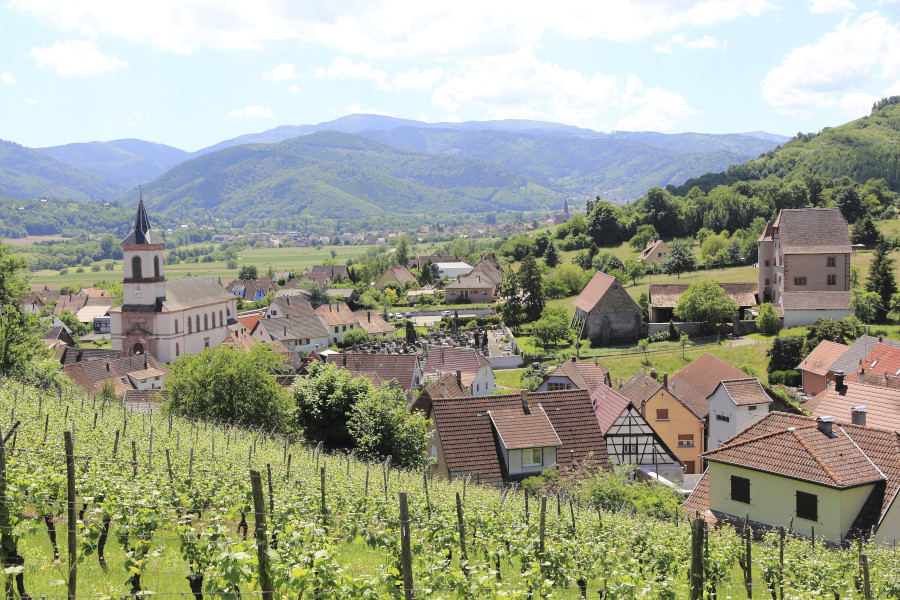Preserving the Countryside: France's Landmark Legislation
Elise Baarsma, Thursday, 11 April 2024

In an era where the French countryside increasingly becomes a haven for urban escapees, France has taken a significant step to safeguard the quintessence of rural life. A groundbreaking law now protects the characteristic sounds and smells of the countryside from complaints by newcomers, referred to as "néoruraux." This legislation aims to foster harmony between the traditional inhabitants and those seeking the rustic allure of rural France.
The need for such a law was highlighted by several incidents that underscored the tension between rural communities and the newcomers. In a notable case, néoruraux called the police to lodge complaints about the "noisy" cricket chirps, a sound that epitomizes the charm of the French countryside for many. Another poignant instance involved draining a 92-year-old woman's pond after complaints about frog croaking were lodged, sparking national outrage.
By introducing this unique piece of legislation, France seeks to resolve such disputes once and for all by officially recognizing that noises such as frog croaking, cricket chirping, church bell ringing, and the rumble of agricultural machinery are integral to rural life and must be protected. These sounds and smells are now considered part of France's cultural heritage.
For those considering purchasing a second home in the French countryside, this law provides crucial insights:
The enactment of this law highlights France's commitment to protecting its rural culture and traditions, offering a pathway to understanding and respect between original inhabitants and newcomers. It marks an important step in preserving the rural heritage and serves as a lesson in appreciating the full spectrum of countryside life.
Our comprehensive guide is the perfect companion if you are considering moving to France or are already living there. Learn all about buying a house, mastering the French language, finding a job, experiencing the culture and discovering tourist attractions. With this guide, you'll have all the information you need to live successfully in France. Read on now to discover it all!

In an era where the French countryside increasingly becomes a haven for urban escapees, France has taken a significant step to safeguard the quintessence of rural life. A groundbreaking law now protects the characteristic sounds and smells of the countryside from complaints by newcomers, referred to as "néoruraux." This legislation aims to foster harmony between the traditional inhabitants and those seeking the rustic allure of rural France.
Catalysts for the Legislation
The need for such a law was highlighted by several incidents that underscored the tension between rural communities and the newcomers. In a notable case, néoruraux called the police to lodge complaints about the "noisy" cricket chirps, a sound that epitomizes the charm of the French countryside for many. Another poignant instance involved draining a 92-year-old woman's pond after complaints about frog croaking were lodged, sparking national outrage.
Key Aspects of the Law
By introducing this unique piece of legislation, France seeks to resolve such disputes once and for all by officially recognizing that noises such as frog croaking, cricket chirping, church bell ringing, and the rumble of agricultural machinery are integral to rural life and must be protected. These sounds and smells are now considered part of France's cultural heritage.
Implications for Future Homeowners
For those considering purchasing a second home in the French countryside, this law provides crucial insights:
- Managing Expectations: Be prepared for the real sounds of countryside living, now protected by law and beyond grounds for complaint.
- Cultural Integration: View these aspects of rural life as an essential part of French countryside culture, rather than an inconvenience.
- Sustainable Relationships: Building good relationships with neighbors and the local community is key to harmonious coexistence.
Conclusion
The enactment of this law highlights France's commitment to protecting its rural culture and traditions, offering a pathway to understanding and respect between original inhabitants and newcomers. It marks an important step in preserving the rural heritage and serves as a lesson in appreciating the full spectrum of countryside life.
Links
Our comprehensive guide is the perfect companion if you are considering moving to France or are already living there. Learn all about buying a house, mastering the French language, finding a job, experiencing the culture and discovering tourist attractions. With this guide, you'll have all the information you need to live successfully in France. Read on now to discover it all!

Search for French property and real estate for sale in all regions of France. Fermettes, gites, houses, B&B’s for sale by owner. Houses for sale in Gironde, Dordogne, Landes, Calvados, Manche and Orne
 Camembert and Brie are well-known cheeses, but in France there are more cheeses than wines. The tastiest cheeses smell the most. One of the worst is a
Boule d' Avene from the region around Lille, which also has an extraordinary taste. For the real lovers, so.
Sharp cheeses such as Roquefort's moulded cheese are sometimes eaten with butter to soften the taste. Mildew cheese is not a spoiled cheese: the moulds
in Roquefort are a kind of peneciline
Camembert and Brie are well-known cheeses, but in France there are more cheeses than wines. The tastiest cheeses smell the most. One of the worst is a
Boule d' Avene from the region around Lille, which also has an extraordinary taste. For the real lovers, so.
Sharp cheeses such as Roquefort's moulded cheese are sometimes eaten with butter to soften the taste. Mildew cheese is not a spoiled cheese: the moulds
in Roquefort are a kind of peneciline